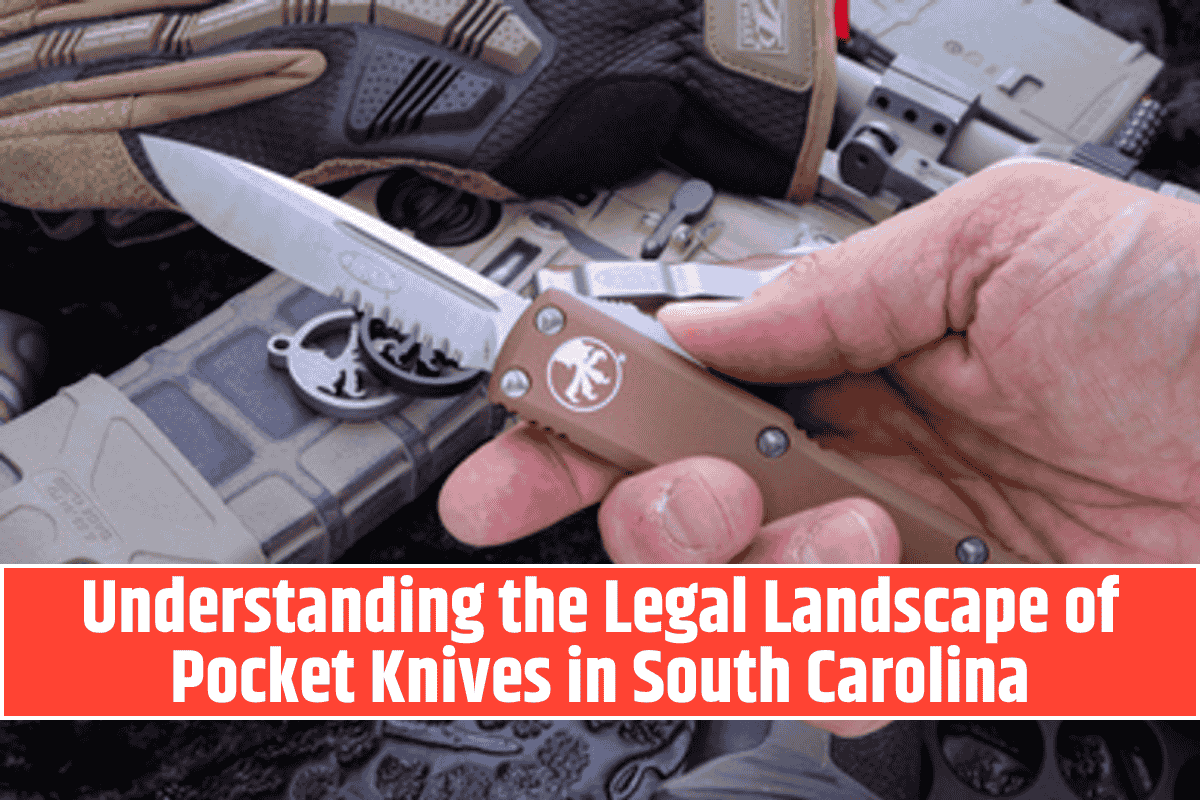South Carolina values personal freedom and self-defense, which is reflected in its approach to knife laws. The state’s legal framework for knives supports a broad range of knife types, with minimal restrictions.
However, there are specific rules regarding where and how knives can be carried. It is important to understand these laws to ensure compliance, especially in different local areas where regulations can vary.
Introduction to Knife Laws in South Carolina
In South Carolina, the right to self-defense has deep historical roots, dating back to figures like Christopher Gadsden, who believed in the importance of individual choice when it came to personal protection. This historical background helps explain why South Carolina’s laws are generally permissive when it comes to carrying knives.
People in the state are allowed to carry a wide variety of knives, but there are still some restrictions, especially regarding where knives can be carried.
Historical Background
Christopher Gadsden, a key figure from Charleston, played a role in shaping South Carolina’s view on self-defense. He advocated for personal rights and individual freedom, influencing how the state treats weapons today.
This belief in personal autonomy is reflected in South Carolina’s current laws on weapons, including knives, which allow individuals significant freedom to choose their means of self-defense.
Current Legal Framework
South Carolina’s current knife laws are designed to protect the right of citizens to carry knives for self-defense and everyday use. The state allows people to carry a variety of knives without strict size limitations, as long as they comply with the rules found in statutes such as 16-23-460 and 24-13-440.
These laws provide freedoms for knife owners, while also placing some restrictions on certain places, such as schools and certain cities, that are subject to additional local rules.
Understanding the Types of Knives Allowed
In South Carolina, the law permits the carrying of various types of knives, including folding knives, pocket knives, and even dirks and daggers. Below, we break down the types of knives that are allowed and those that might be restricted in certain situations.
Dirks and Daggers
Dirks and daggers are legal to carry in South Carolina. This shows that the state is open to different blade shapes and recognizes that such knives can be important for self-defense. These knives can be carried openly or concealed, following the state’s general rules.
Folding Knives and Pocket Knives
Folding knives and pocket knives are common and widely accepted in South Carolina. These knives don’t face special restrictions unless used for illegal activities. Their compact size and versatility make them popular for daily use, and they are allowed both for open and concealed carry, provided the user follows proper guidelines.
Prohibited Knives
While South Carolina is generally permissive with knives, some restrictions do apply. Switchblades, for example, may not be allowed in certain cities, such as Columbia. Additionally, knives with long blades are not allowed on school grounds, and places like Greenville may have stricter rules regarding weapons to prevent misuse.
Where and How You Can Carry Knives
It’s essential to understand the rules for carrying knives in South Carolina, whether you choose to carry them openly or concealed. There are also specific places where carrying knives is restricted. Let’s look at the key factors influencing where knives can and cannot be carried.
Open Carry Versus Concealed Carry
In South Carolina, you are allowed to openly carry many types of knives without specific restrictions. However, carrying a knife concealed has additional rules, particularly for larger knives or in areas with stricter regulations. Following these guidelines will help you stay within the law when carrying your knife.
Specific Location Restrictions
While knives can generally be carried in South Carolina, certain locations have restrictions. For example, on school grounds, knives with blades longer than two inches are prohibited.
Additionally, local ordinances in cities like Charleston, Columbia, and Greenville may restrict the carrying of knives with larger blades, especially when concealed. To avoid legal trouble, it’s crucial to be familiar with the knife laws specific to the city you’re in.
Exceptions for Law Enforcement and Military
Law enforcement officers and military personnel have different rules regarding the carry of knives. These individuals are often allowed to carry knives freely for professional purposes, recognizing the special needs of their roles in ensuring public safety.
Local Ordinances and Statewide Preemption
While South Carolina generally supports personal freedom regarding knives, local ordinances in cities like Charleston, Columbia, and Greenville can impose stricter rules. This creates a complex legal landscape for knife owners, as the state’s broad knife laws may be altered by local regulations.
South Carolina’s Constitution allows the state to preempt local laws, but local municipalities still have some authority to impose restrictions. Therefore, it’s important to check local regulations before carrying knives in different areas.
Major Cities with Restrictive Ordinances
Cities like Charleston, Columbia, and Greenville often have stricter rules about carrying knives. These cities may regulate the maximum blade length, especially for concealed knives, and often prohibit larger knives in public spaces. It is important to research the knife regulations of each city to avoid unintentional violations of the law.
Impact of Local Laws on State Law
Local laws can change the state’s general knife laws, especially in large cities or areas with more restrictive ordinances. Although South Carolina’s state laws offer general freedoms regarding knife carry, understanding both state and local laws is crucial to ensure compliance.
Local cities can modify how knife laws are applied in their jurisdictions, making it essential for knife owners to stay informed about both levels of regulations.
South Carolina offers a generally permissive legal environment for carrying knives, reflecting its historical commitment to individual rights and self-defense.
While there are few restrictions on the types of knives that can be carried, there are specific rules regarding where and how they can be carried, especially in schools and major cities like Charleston, Columbia, and Greenville.
By understanding both the state and local laws, knife owners can ensure they are complying with all relevant regulations.












